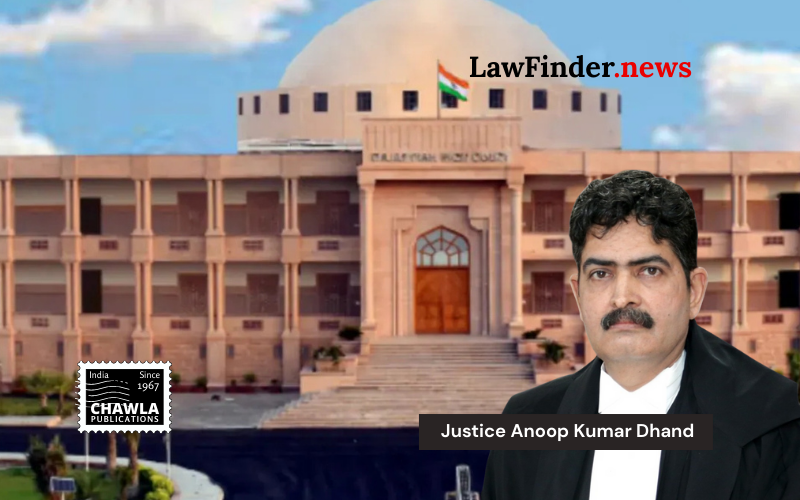Court emphasizes necessity of original device certification under Section 65-B for admissibility of electronic evidence
In a significant ruling, the Rajasthan High Court at Jaipur Bench, presided over by Justice Anoop Kumar Dhand, addressed the critical issue of electronic evidence admissibility in the case of Shwetabh Singhal v. M/s J.K and Sons. The Court underscored the importance of a valid certificate under Section 65-B of the Indian Evidence Act, which must be issued by the person in whose device the original electronic record was created.
The case revolved around an application submitted by the respondent under Section 21 of the Rajasthan Rent Control Act, 2001, seeking permission to produce electronic evidence recorded on a Pen Drive and Compact Disc. The core dispute was whether a certificate issued by a person to whom the electronic record was subsequently transferred held validity under Section 65-B of the Indian Evidence Act.
Justice Dhand reaffirmed the precedent set by the Supreme Court in Anvar P.V. v. P.K. Basheer, emphasizing that the certificate must be provided by the individual responsible for the device where the original recording was made. The judgment reiterated the Supreme Court's stance that the trial judge must ensure the compliance of Section 65-B(4) requirements and summon the concerned person to furnish the necessary certificate if not initially submitted.
Despite the respondent's efforts to present electronic evidence, the High Court found the certificate issued by respondent No.2, Rajendra Kumar Johri, invalid, as the original recording was conducted on Rajat Sancheti's device. The court directed the parties to procure the appropriate certificate from Sancheti for the evidence to be admissible.
This decision reinforces the mandatory nature of the provisions under Section 65-B and highlights the judiciary's commitment to upholding procedural integrity in the admission of electronic evidence. Legal experts suggest this ruling will serve as a pivotal reference for future cases involving electronic records.
The case references include landmark Supreme Court decisions Anvar P.V. v. P.K. Basheer and Arjun Panditrao Khotkar v. Kailash Kushanrao Gorantyal, which set the groundwork for electronic evidence admissibility standards across India.
Bottom Line:
Certificate under Section 65-B of the Indian Evidence Act must be issued by the person in whose device the original electronic record was created.
Statutory provision(s): Indian Evidence Act, 1872 Section 65-B, Rajasthan Rent Control Act, 2001 Section 21
Shwetabh Singhal v. M/s J.k And Sons, (Rajasthan)(Jaipur Bench) : Law Finder Doc Id # 2782681




